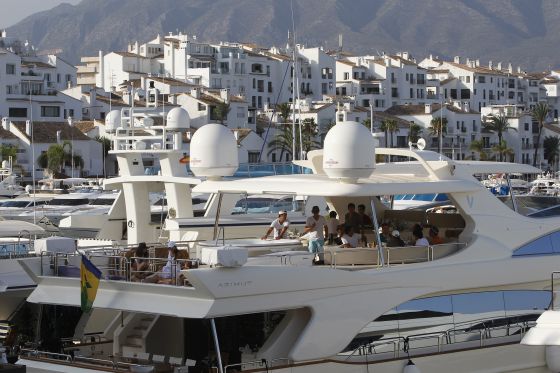The European nautical industry, world leader for its quality, will go under if the European authorities don´t act rapidly. The internal market is strong (48 million Europeans practice nautical activities), but the crisis has sank the sales by half already during in its first two years, and put he second hand market in the hands of the banks, who confiscate boats for outstanding credit payments. The exports are in agony becuase of the normative and various tariffs and fees in their main markets, a hardship for an industry formed mainly by small and medium size companies. The sector complains that the Asian countries sell for half the price and they don´t comply with the european security and contamination regulations thanks to the lack of inspections. The situation in Spain deteriorates, in Brussels eyes, because of unjustified tax policies.
The nautical industry report: A transformation accelerated by the crisis, by the European Economic and Social Committee (EESC), in agreement with the sector, demands common policies to defend the industry formed by 37.000 companies that give direct jobs to 234.000 people and invoiced 20.000 million euros in year 2011. Co-author of the report, Patrizio Pesci, also a co-president of the Advisory Committee of Industrial Transformations of EESC, sees an an uncertain future. “ Antonio Tajani, responsible for the Industry and Enterprise and vice-president of the European Commission, has given his guarantees to defend the industry, and the Commission has promised to make a Green Book, but the bureaucracy in Brussels is exasperating, and in the meantime, the companies close or are bought up by the Chinese”, explains Pesci.
The worldwide nautical industry constructs boats under loads of normatives. “This slows down the European exports to USA, which demands boats to be constucted under its own normative. Only the French multinational Groupe Beneteau can comply easily. The rest are small and medium size companies”, clarifies Pesci. Astondoa, Rodman and Starfisher, the three major Spanish boat builders “cope with difficulty the requirements of the american market”, explains Carlos Sanlorenzo, the general secretary of the National Association of the Nautical Enterprises (ANEN).
Europe is the number 1 recreational yachting destination in the world, with 66.000 km of coastline
It is essential to invest in innovative products, reduce costs of production, harmonize the normative, create a European brand and promote joint selling efforts. “We are a world power, but we are losing markets to Turkey and the Asian countries. We have to talk less, and join our forces to defend ourselves against them”, asserts Pesci. Europe, North America, Australia and New Zealand are the main buyers of European boats, and we should be going to emerging markets where there is money. Brazil and China have money, but there are too many problems. Brazil applies some import duties that almost double up the price of the boats, and China demands high technical standards of the adquired boats, only “to copy them the next day”, according to Pesci. “We need to negotiate the exports jointly according to European normative and labels”, he remarks.
The problems of the sector are not restricted to the manufacturing. The problems reach the 4.500 ports and marinas with 1,75 million moorings. A fleet of 6,3 million boats drive innumerous companies of maintenance, financial and insurance services, sea schools and tourism. Europe is the number 1 recreational yachting destination in the world with 66.000 km of coastline, and 70% of the chárter activity is concentrated in the Mediterranean. A tangle of fiscal processes and national regulations (licenses, matriculation, security rules, taxation etc.) complicate the business to a point of seizure. “Such differences in treatment do no exist in other mediums of transport, like cars, trains or airplanes”, assures Pesci.


No comments:
Post a Comment